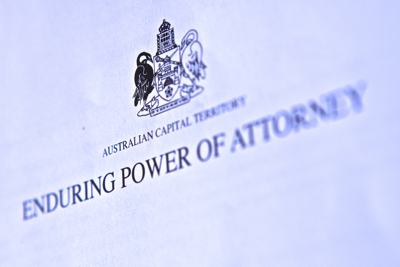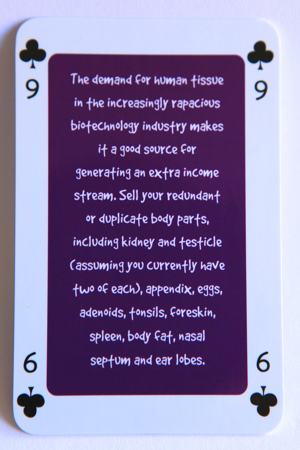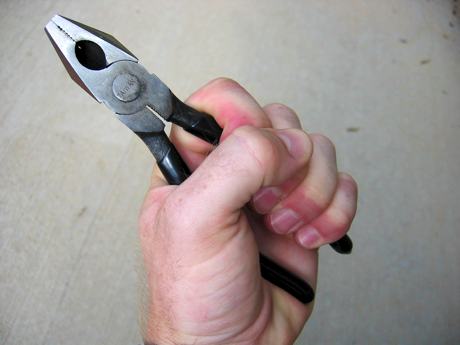Estate Planning
I intend to spend my last dollar as they’re nailing down my coffin lid. -My late Great Uncle, George Haggarty
If you are about to switch off or skip this topic, I must emphasise that this is an area not just for old people, but for anyone over the age of 18. Bugger all people know when they’re going to die.
Estate planning is about organising your assets and affairs before you die or become incapacitated and there are two ways of looking at it. The first is to say, “I’ll be dead, I don’t care what happens”, they other is to take away a potentially huge emotional stress from your loved ones.

Powers of Attorney
Estate planning is not only about death as it covers Powers of Attorney as well. There are basically two types: 1) General Power of Attorney, and; 2) Enduring Power of Attorney. A General Power of Attorney is a legal document giving somebody you trust the power to make financial decisions and sign things on your behalf when you can’t yourself, for example when you are on an overseas holiday. An Enduring Power of Attorney allows these same decisions to be made when you have lost mental and/or physical capacity. Huh? Let’s go back to the story in the Insurance topic, to when the bus put you in that two week coma.

With an Enduring Power of Attorney, the attorney (the person who you wish to have the power) could easily withdraw money out of your bank account to help provide for your two kids. Without that document this process becomes much more difficult.
You must ensure that anyone you give the power to, you trust absolutely because once you have signed the Power of Attorney, they do not have to get your permission to spend your money, even though they do have a duty to act in your best interests.
When my parents went on a long holiday many years ago they gave my sister Power of Attorney so that she could write cheques to pay the phone and electricity bills for them. When mum and dad arrived home they turned into the driveway to be greeted by a real estate agent’s for sale sign, with a sold sticker across it. It took them quite a few long seconds to get the joke.
As Powers of Attorney are governed by state laws they differ from jurisdiction to jurisdiction. Often a General Power of Attorney and an Enduring Power of Attorney are just different parts of the same paperwork. You can probably download and sign one for free, but just like anything to do with finances, you have to read and understand the jargon first. If you don’t, go see a solicitor. Further information for all states and territories are:

Wills
A will is another legal document, but one which outlines where you want your estate assets to go after you die. Estate assets don’t include most jointly held assets (most commonly a house or joint bank account) or assets held by a trust, which includes money in superannuation, a family trust or a family company. If you haven’t already done so you should get in touch with your super fund to nominate a beneficiary, or beneficiaries, for how you would want your super distributed upon your death. Your choices are generally limited to a spouse (including de-facto) and children under 18.
If you don’t have any of these, you can nominate your estate, then set out in your will where you would like this money to go. Unfortunately this is no guarantee as to who will receive the money, but it’s a good guide for the trustee of your super fund. If you are thinking “This is bullshit! It’s my money!” I can understand your being upset. But legally your superannuation is actually not your money as it is held in trust for you. The reason your wishes can be overturned is so that the super money isn’t taxed too much before passing to a dependent.
Case Study
Colin was a bachelor, who saw no need to make a will. He died suddenly, in his 70s, with a house in Sydney and several blocks of land along the coast. His family wasn’t close. Dying without a will, Colin’s beneficiaries were his surviving siblings and the children of those who had already died.
The problem was that two of his siblings hadn’t been heard from for many years and one of them was thought to have died, but no-one really knew. Colin’s eldest brother had to apply to the court for permission to administer the estate. As it seemed the estate could take some time to administer, his solicitor suggested he make a joint application with a niece, who could carry on if he were to die before the estate could be wound up, but he didn’t.
The first task was to ascertain who the beneficiaries were. If it couldn’t be established that the two siblings had died, they would have to be included, even if they couldn’t be found. A couple of other siblings were known to have died and their death certificates had to be obtained, as well as their marriage certificates and birth certificates of their children in order to establish who their children were as the kids would inherit their parent’s share. It turned out that there were several fortunate nieces and nephews in this situation, none of whom Colin had ever met.
One missing sibling was never found, though considerable lengths had to be made to attempt to locate her. This included, as well as searching for a record of her death, perusing electoral rolls. Among Colin’s papers was an undated letter from her. The envelope’s post mark was illegible, but from the value of the stamp they narrowed down the period of years when it was sent and found the name of the landlord of the premises at the time, even though it was more than 30 years before. Of course the landlord had long since gone, but the court required such attempts to locate her to be made.
More than 20 birth, marriage, death and adoption certificates had to be obtained to ascertain all the beneficiaries. Colin’s eldest brother’s application to the court could then be granted and the assets put on the market. The house and three of the vacant blocks were then sold, but the remaining block was swampy and could not be sold before Colin’s brother died.
The suggested niece then had to make a fresh application to the court to complete the estate’s administration. Eventually the last block was sold, the estate wound up and the missing sister’s share had to be paid to the court.
Had Colin made a will his estate could have been completed in a fraction of the time it took and at a fraction of the cost.
Before that bus hit you and made you comatose, you hadn’t made a will, even though you wanted your kids to get everything from your estate. This is because you had recently separated from your spouse in an ugly break-up. Under the relevant laws your estate may go entirely to your spouse.
Your spouse quickly remarries the person who they were having the affair with (the person you hate and blame for your separation) and soon afterwards, your spouse dies, also without a will. All of the money your estranged spouse had obtained from your estate then passes into the hands of the one person in the world who you did not want to get a cent of your money – your old spouse’s new spouse. The sad thing about this scenario is that it could’ve been avoided with the purchase of a will kit for around $30, or from seeing a solicitor, who, for a few dollars more could make a will much more water tight than a will kit, making it less likely someone like your ex could successfully contest it.
According to ASIC, about half of all Australians die without a will. If you don’t have a will, your state or territory’s law has one for you, and it may not be to your liking.
In Victoria, about one will in four ends up in a dispute. This is probably because many people don’t realise that you have a responsibility to provide for your family, whether you are still talking to them or not. If you wish all, or a large portion of your money to be given outside your family, it’s a really good idea to tell them of your plans, then give reasons for your decisions in your will.

D.I.Y. dentistry.
My old man is a retired solicitor who had written wills for clients for many years. After having dealt with more than just a few problems from wills made with will kits he says, “You don’t need to see a solicitor to have a will written, and you don’t need to see a dentist to have teeth pulled.”
Some of the more common mistakes of writing a will without expert help include appointing a friend as executor who is not up to the job. It can be a complicated and stressful task for a mate to do, especially if they lack the financial nouse required. (The executor is the person who administers the estate as set out in the will.) Many people also make the mistake of including in their will assets that they don’t actually own, like those non-estate assets I mentioned above (super, family trust assets, jointly held assets, etc.), or not taking into consideration debt that may be attached to property. A few oversights can make an estate distribution that you thought was fair, turn into a very uneven carve up for your loved ones.
Every adult in Queensland should have a will. Yep, all of you. Finally a good reason for being a Queenslander (yes, I’m ignoring all those State of Origin series wins). The Queensland Public Trustee offers a service where they will write a will for free and without obligation. They have about 16 regional offices and a bunch of other places to go if an office isn’t in your neighbourhood. The Public Trustees in the other states and territories may offer “free” wills but only on the condition you appoint them as executor, which will cost your estate some pretty hefty fees.
If you have watched a daytime movie on telly in recent years you couldn’t have missed the number of ads there are for funeral insurance, all emphasising how expensive funerals are. Before you start paying money into a product that will exponentially rip you off over the years to come (remember those stepped premiums we just covered in the Insurance topic), consider the positive impact you may have on the medical fraternity if you give your body to science. Not many universities are able to accept these donations and there are a number of criteria that need to be satisfied before it can take place. But you may be able to make a valuable gift to medicine at the same time as freeing your family from the burden of paying for your funeral.
What happens to an estate for a person who dies intestate (without a will, not interstate – in another state) is decided by the various state and territory governments. Generally, marriage nullifies an existing will unless it was written with a pending marriage incorporated into it. Separation usually doesn’t affect a will, and divorce may or may not make one null and void, depending on the various state laws. We are getting into legal areas here and it’s bloody complicated.
The flow of assets is (generally) distributed according to a pre-determined formula with family members receiving a certain percentage of your estate. The flow can be (roughly) firstly to your spouse and/or children, then grandchildren, your great-grandchildren, your parents, siblings, grandparents, aunts and uncles and first cousins. If you don’t have any of these relatives still living, the state/territory government can get the lot. Yes, every last cent you have can end up with ‘The Crown’. If your spouse is a de-facto it can start to get really complicated.
There is absolutely nothing wrong with giving a large chunk of your estate to charity, but imagine how upset your sick spouse will be if they read in your will “Half of my earthly possessions are to go to the Save the Cane Toad Foundation”.
Some people will use any number of excuses to avoid making a will, including that it’s bad luck to do so. I’m really sorry to have to tell you this, but we’re all going to die. Not right now. I haven’t hired a hit man to burst into the room you’re in and start throwing sharp objects around. Primarily ‘cause I don’t know where you are, they charge too much and there is no room for ninja stars in this fortnight’s ‘Desirable spending’ column (although, as a work related expense, it would be tax deductible for me. Hmmm, must consider this).
But, when you make a will has no bearing on the timing or manner of your death.
So for lower stress on your family and peace of mind for you, there are three things to do:
- Nominate a beneficiary for your super
- Sign an Enduring Power of Attorney and
- Make a will.
Estate Planning Questions
- An Enduring Power of Attorney remains valid beyond death
- A General Power of Attorney cannot be used when someone is overseas
- A General Power of Attorney cannot be used when mental capacity has been lost
- An Enduring Power of Attorney can only be used when mental capacity has been lost
- A General Power of Attorney remains valid beyond death
2) Who can you put down as a beneficiary for your superannuation?
- Your spouse
- Your de-facto
- Your same sex partner
- Your children under age 18
- All of the above, but no others
- Anyone over the age of 18
- Only people who have dependants
- Only parents
- Only people who have assets totalling more than $20,000
- Only older people who are about to die
